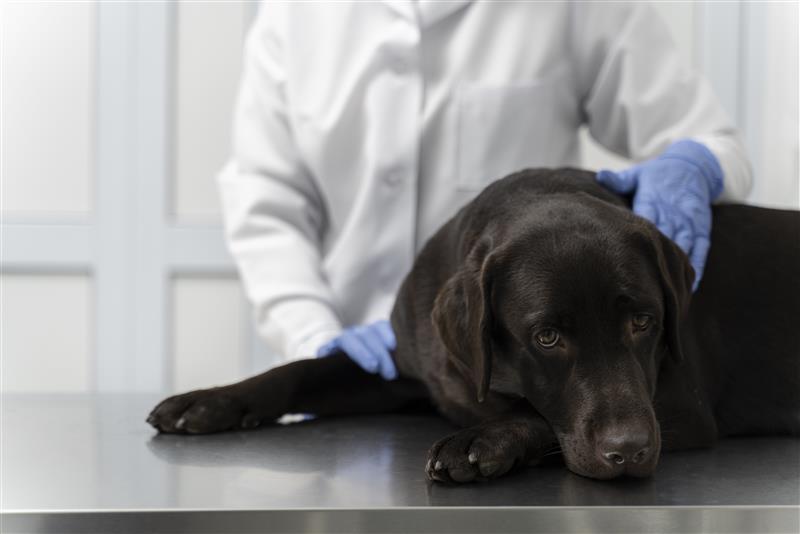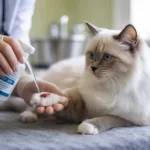
Contents
Our homes are filled with everyday items that we may not realize are hazardous to our pets. From food items to cleaning supplies, the potential for accidental poisoning is always present. Whether it’s a curious dog eating something they shouldn’t or a cat chewing on a toxic plant, pet poisoning can happen quickly, and the effects can be devastating.
As a pet owner, it’s crucial to be aware of the common household hazards that can lead to poisoning in pets. In this blog, we’ll discuss the most common toxins found in your home, how to recognize the symptoms of poisoning in your pet, and what to do in case of an emergency.
Common Household Hazards That Can Poison Your Pet
Many common household items are toxic to pets, and unfortunately, pets are often more prone to ingesting these items than we realize. Here are some of the most common household hazards for pets:
- Chocolate
It’s no secret that chocolate is toxic to pets, especially dogs. The main toxin in chocolate, theobromine, can cause serious problems, including vomiting, diarrhea, seizures, and even death in severe cases. The darker the chocolate, the more toxic it is, as it contains higher levels of theobromine. Even small amounts can be dangerous, so if your pet eats chocolate, it’s essential to seek emergency care for pets immediately. - Xylitol
Xylitol, a sugar substitute found in sugar-free gum, candies, baked goods, and some peanut butters, can be extremely toxic to dogs. Even small amounts of xylitol can cause a sudden drop in blood sugar (hypoglycemia), seizures, liver failure, or even death. If your dog consumes anything containing xylitol, it’s critical to get them to an emergency pet clinic as soon as possible. - Human Medications
Many common over-the-counter and prescription medications are toxic to pets. Non-steroidal anti-inflammatory drugs (NSAIDs), such as ibuprofen and aspirin, can cause stomach ulcers, kidney failure, and even death. Other medications, such as antidepressants and blood pressure medications, can also be harmful to pets. Always keep medications in a safe place, out of reach of your pets. - Toxic Plants
Many plants that are commonly kept in homes or gardens are toxic to pets. Some of the most dangerous plants include lilies (toxic to cats), azaleas, oleanders, and poinsettias. Pets, especially cats and dogs, may nibble on leaves or chew on flowers, putting them at risk of poisoning. Be sure to know which plants are toxic and keep them out of reach of your pets. - Cleaning Supplies
Household cleaners, disinfectants, and other chemicals can be toxic to pets if ingested or even inhaled. Products like bleach, ammonia, and certain floor cleaners can cause severe gastrointestinal distress, lung damage, and burns. Always store these products in a secure place and ensure your pet doesn’t come into contact with them. - Pesticides and Rodenticides
Many pet owners use pesticides to protect their homes and gardens from pests, but these chemicals can be deadly to pets if ingested. Rat poison, for example, can cause internal bleeding and organ failure, while insecticides can lead to seizures and neurological damage. Always store pest control products out of reach and never use them in places where your pet has access. - Alcohol
While it may be surprising to some, alcohol is toxic to pets. Even small amounts of alcohol, such as what is found in a glass of wine or a small piece of food soaked in alcohol, can cause vomiting, diarrhea, difficulty breathing, and coma in pets. Never leave alcohol unattended around pets, and keep all alcoholic beverages well out of their reach.
Symptoms of Poisoning in Pets
If your pet has ingested something toxic, it’s important to act quickly. The symptoms of poisoning in pets can vary depending on the substance ingested, but common signs include:
- Vomiting or diarrhea
- Lethargy or weakness
- Difficulty breathing or rapid breathing
- Seizures or tremors
- Drooling or excessive salivation
- Loss of appetite or refusal to drink
- Unusual behavior or disorientation
- Blood in stool or urine
- Abnormal heart rate or rhythm
If your pet exhibits any of these symptoms, especially if they have ingested something potentially toxic, seek emergency care for pets immediately.
What to Do If Your Pet Is Poisoned
If you suspect that your pet has ingested something toxic, don’t wait for symptoms to appear. Here’s what you should do:
- Call Your Emergency Vet
Contact your vet or an emergency pet clinic right away. Provide them with details about what your pet ingested, how much they consumed, and when it happened. This information will help the vet determine the severity of the poisoning and the appropriate treatment. - Do Not Induce Vomiting Unless Instructed
Many people mistakenly think they should make their pet vomit if they ingest something toxic. However, inducing vomiting can sometimes make the situation worse, especially if the substance is corrosive. Always consult your vet before attempting to make your pet vomit. - Bring the Toxin with You
If possible, bring the packaging of the toxic substance or a sample of the plant your pet ingested. This will help the vet identify the toxin and provide the best treatment for your pet. - Stay Calm
While it’s incredibly stressful to see your pet in danger, staying calm will help you think clearly and act quickly. Keep your pet still and comfortable while you wait to go to the clinic.
Preventing Poisoning in Pets
The best way to protect your pet from poisoning is to prevent access to toxic substances in the first place. Here are some tips to keep your pet safe:
- Keep all food, medications, and chemicals out of reach of your pet.
- Familiarize yourself with common household toxins and plants that are dangerous to pets.
- Secure trash cans, especially those containing food wrappers or bones.
- Avoid leaving alcohol, cleaning supplies, or other chemicals within your pet’s reach.
- If you have houseplants, research which ones are safe and which are toxic to pets.
- Store medications, especially human drugs, in cabinets or high-up spaces that pets can’t access.
Conclusion
Pet poisoning can happen quickly and unexpectedly, but with the right knowledge and precautions, you can minimize the risk. If you suspect your pet has ingested something toxic, don’t delay—immediate action is critical to their health and well-being. Keep your emergency vet’s contact information readily available and be sure to act quickly if your pet shows any signs of poisoning.
At North MS Pet Emergency, we are equipped to handle all types of emergency pet care, including poisoning cases. Our experienced team is here to provide the immediate treatment your pet needs, 24/7. If you think your pet has been exposed to a dangerous substance, don’t hesitate—contact us for urgent care. Contact Us Now for immediate assistance, or visit us for emergency care for pets after hours.




